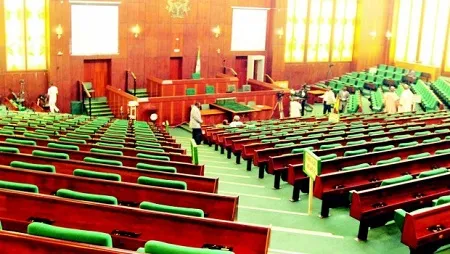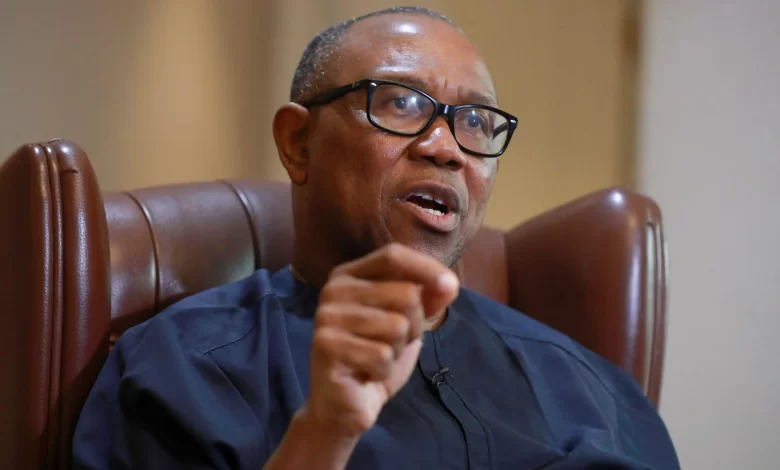…Says Nigeria on course to become the highest economy by GDP in Africa
The World Bank’s Country Director for Nigeria, Dr Ndiame Diop has lauded the pragmatic reforms undertaken by the country, noting the reforms reposition Nigeria as the nation with the highest economy by Gross Domestic Product (GDP) in Africa.
He acknowledged the reform in forex exchange and other initiatives as among bold initiatives by the administration which rebound investors’ confidence in the economy.
Diop spoke on Thursday in Abuja at the Country Private Sector Diagnostic (CPSD) and Stakeholder Engagement.
He said: “Despite all the challenges that the private sector faces in Nigeria, even though Nigeria, receives very little FDI compared to its potential and compared to a country like Indonesia and South Africa”, the country will emerge as the biggest economy by GDP”.
His assessment of the Nigerian economy is coming on the heels of the GDP report expected to be released at any moment.
“Now just imagine if some actions were taken to remove challenges and obstacles that the private sector is facing in many areas. Just imagine where the economy will go. Now this is the right time to really address these constraints that the private sector is facing.”
“Why? Because the country has implemented very bold reforms over the last two years to stabilize the economy. So with macro stability, with this exchange rate market and access to FX being much, much more available than before, and in general, the investment environment has already improved quite significantly from a macroeconomic perspective.
“Now this is the time to leverage that improved macroeconomic environment by doing sector reforms that will unlock investment and create jobs. So the timing is very favourable because of the really very good macro-fiscal reforms that were implemented”, he said.
He said Nigeria has other potential areas of investment capable of generating job opportunities.
“There are many other sectors where Nigeria actually can invest more, create more jobs and create more prosperity. But let’s look at these four. If you take the right actions and remove constraints in this sector, you will unlock massive investments.
“For example, in the ICT sector, investment up to $ 4 billion could be unlocked and more than 200,000 jobs can be created. And this is because Nigeria has set an ambitious target for broadband rollout. And if you get to that target, that will unlock investment, but that will not happen automatically. It will require reforms and I will come to that”
“In the agribusiness sector, up to $6 billion and more than 275,000 jobs could be created. In the solar PV system, up to $8.5 billion and more than 129,000 jobs.
“In the pharmaceutical, up to $1.6 billion and more than 30,000 jobs. Now, if you look at the sectors one by one in the ICT broadband if there was one reform, just one, that would unlock investment in the sector. It’s actually the first one here”, he said.
In his remark, Dr Dahlia Khalifa Regional Director for Central Africa and Anglophone West Africa of the IFC said “if we could just focus on some of the reforms that should be undertaken, that could be undertaken, that could unlock more investments and hence more job growth and impact, it would be consistency”.
“And consistency is an overriding theme. So here we’re talking about more consistency of the application of duties and fees by customs and revenue agencies. What does the private sector like the most? They like predictability. Predictability is very important for businesses to be able to invest and grow.
“And so when there are changing applications of fees and duties, that introduces a high element of unpredictability which doesn’t allow businesses to grow and have any strategic planning. So I think this is a critical one”
I also wanted to just focus on the reality that even though we said that only 30,000 to 40,000 jobs could be created, direct jobs could be created by investing in pharmaceuticals which was lower than the other three sectors, I think we can all agree that the indirect impact of an improved healthcare service is much larger.
The Minister of Finance and Coordinating Minister of the Economy Wale Edun said the federal government deeply appreciates the IFC support in key sectors.
“We heard about the support today, about agriculture, about infrastructure and pharmaceuticals for example but they have been key in sectors such as fertiliser, processing, SME financing, rural electrification and the kind of projects that they have helped us finance with private sector leadership and involvement is for example the $1.2 billion financing for Indorama at eleme Fertiliser and Chemicals Company which has expanded their production. The partnership with John Vance in Cocoa Processing and 70 million dollars to First City Monument Bank for SME financing”
“As you recognise, wasteful subsidies have been dealt with, have been removed, and that has left the economy and the finances of the government in a much better place.
“And similarly, the security has improved and that has led to increased oil production once again supporting revenue growth as a basis for having a stable economy that the private sector can feel safe, can feel comfortable investing in”, Edun said.
Please follow and like us:








